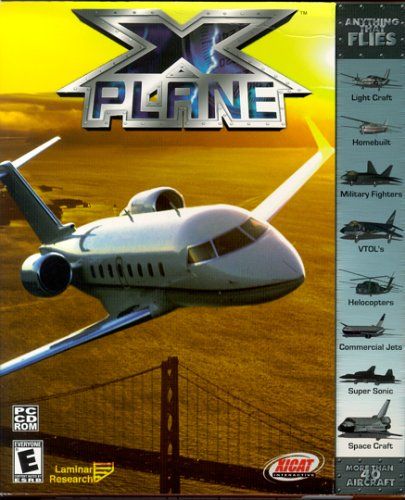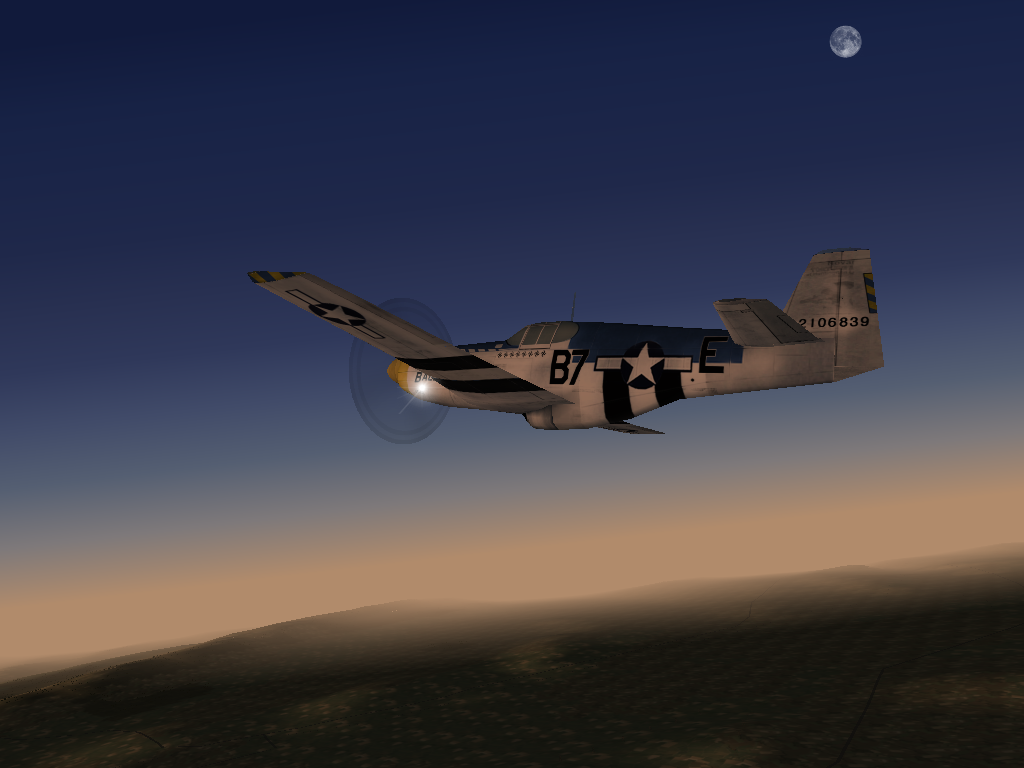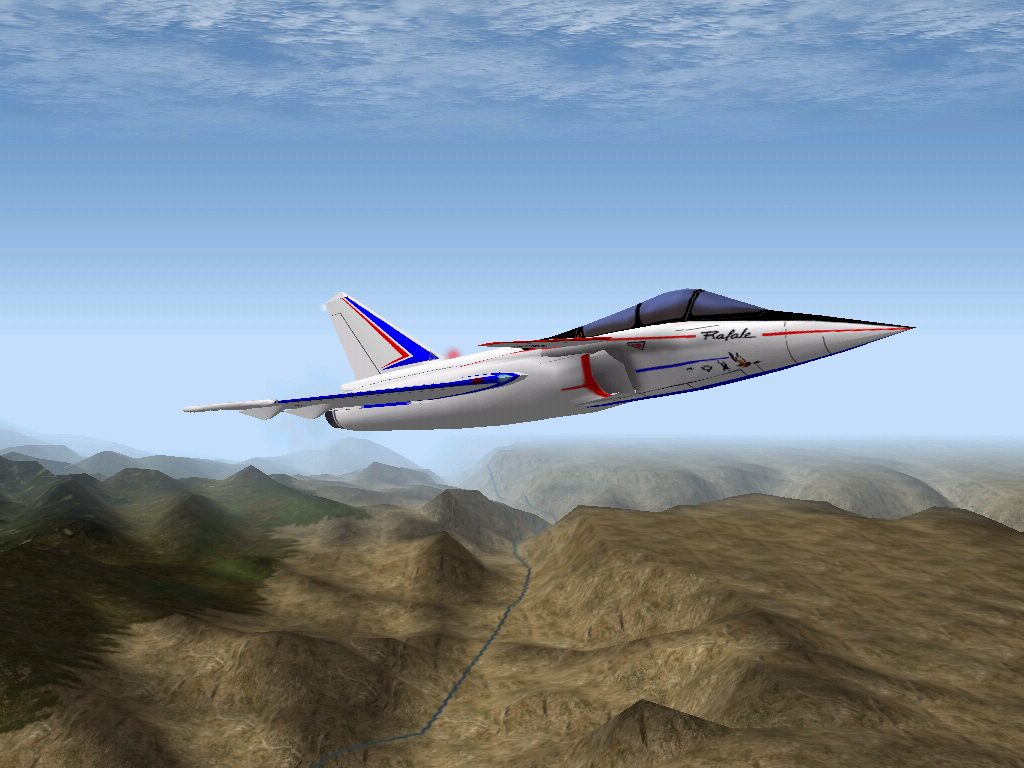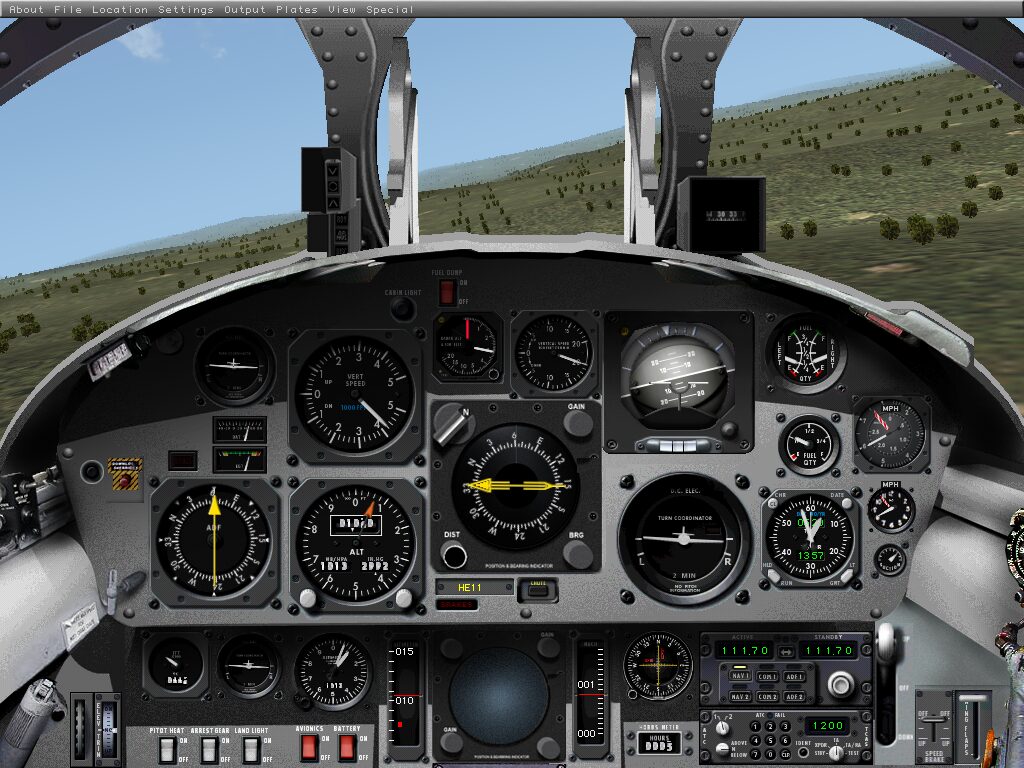Retro Replay Review
Gameplay
X-Plane 6 delivers one of the most authentic flight simulation experiences on the market by employing blade element theory to calculate lift, drag, and thrust for each part of the aircraft. Unlike table-driven simulators, it models the forces on each individual surface in real time, resulting in highly responsive and realistic flight characteristics. Whether you’re lifting off in a nimble Cessna 172 or throttling up for supersonic flight in the F-22 Raptor, the handling reflects subtle changes in weight distribution, weather, and surface geometry.
(HEY YOU!! We hope you enjoy! We try not to run ads. So basically, this is a very expensive hobby running this site. Please consider joining us for updates, forums, and more. Network w/ us to make some cash or friends while retro gaming, and you can win some free retro games for posting. Okay, carry on 👍)
The simulator’s comprehensive integration of actual weather data and dynamic atmospheric modeling takes immersion to new heights. Real-world METAR and TAF reports feed into the engine, creating environments that range from glassy calm to fully developed thunderstorms. Pilots can plan cross-country flights, manage fuel strategies, and respond to system failures on the fly. The included flight-planning tools and navaid database (over 25,600 navaids and 21,000 airports) make route creation intuitive, and built-in failures let you test your emergency procedures under pressure.
Customization is a core strength of X-Plane 6. The game ships with powerful editors for aircraft design, scenery generation, and custom navaid placement. Enthusiasts can tweak aileron sizes, adjust center-of-gravity envelopes, or even craft entirely new airframes from scratch. Support for third-party plug-ins opens the door to live online flying, advanced flight planning, and integration with motion platforms or home-built cockpits. This flexibility means the simulator can grow with your ambitions—whether you’re refining your IFR skills or staging moon landings on X-15 trajectories that simulate Martian atmospheres.
Despite the deep simulation layer, X-Plane 6 remains accessible to newcomers. A tiered set of difficulty settings and guided tutorials help you progress from basic takeoffs and landings to complex crosswind approaches or automated instrument departures. With customizable HUDs and a choice of cockpit overlays, pilots of all skill levels can find a balance between realism and playability. Overall, the gameplay foundation is robust enough for professional flight training yet approachable for hobbyists eager to explore every corner of the globe.
Graphics
X-Plane 6’s visual leap is immediately apparent with its minimum resolution requirement of 1024×768. The new scenery format boasts five times more elevation points than its predecessor, drastically improving terrain fidelity and reducing jagged horizons. Travel across the United States and you’ll notice accurate land-use overlays, detailed river networks, and realistic road patterns. The round-earth terrain model finally eliminates the curvature errors of older versions, offering a seamless, globe-spanning world.
Auto-generated buildings and infrastructure give populated areas a believability that was previously missing. Towns spring to life with clusters of houses, hangars, and industrial complexes placed logically according to local land-use data. Major airports feature high-resolution textures, correctly scaled taxiways, and accurate runway markings. The result is a living world where approaches and departures feel like navigating real airspaces rather than generic flat fields.
Aircraft models have received significant polish, too. High-detail cockpits combine with improved instrument textures and interactive gauges that react to lighting conditions. The new texture format supports multiple layers, offering wear-and-tear effects, reflective panels, and crisp numbering. From the gleaming metal of the Boeing 747’s fuselage to the matte surfaces of the Bell 206’s rotor assembly, each model reflects a deep attention to visual authenticity.
Environmental effects complete the picture, with volumetric clouds, sun glare, and realistic water rendering. Shadows cast by passing clouds can momentarily dim your cockpit, and reflections off alpine lakes shimmer as you bank overhead. While hardware demands are higher than previous editions, modern GPUs handle these effects smoothly, rewarding pilots with breathtaking vistas and weather transitions that underscore the simulator’s real-time nature.
Story
As a sandbox flight simulator, X-Plane 6 does not adhere to a traditional narrative but instead crafts its own stories through pilot-driven objectives and community scenarios. You might recreate a historic transatlantic crossing in the X-15, simulate a search-and-rescue mission in the Bell 206, or attempt a carrier landing challenge with the F-22 Raptor. Each flight becomes a personal tale shaped by weather, mechanical failures, and ATC interactions.
The game includes a handful of structured missions and tutorials that walk you through procedures such as precision approaches, engine-out procedures, and crosswind landings. These guided experiences serve as chapters in your own training manual, building from basic principles to advanced techniques. While not a scripted campaign, the variety of scenarios gives new pilots a sense of progression and achievement as they master increasingly complex flight regimes.
Community-driven story arcs emerge through online networks and plug-ins that facilitate real-time virtual airlines or formation-flying events. Pilots coordinate schedules, manage virtual fleets, and share flight plans, injecting a social dimension into an otherwise solitary pursuit. Whether staging an aerial formation across the Rockies or conducting time-critical medevac runs, you become part of a living narrative written by thousands of fellow aviators.
For those seeking a deeper backstory, the built-in aircraft editor can serve as a storytelling tool. Design a prototype jet, name its flight characteristics, and embark on inaugural test flights that highlight your own engineering vision. This creative avenue transforms X-Plane from a pure simulator into a platform for aviation storytelling, where every takeoff and landing contributes to your personal aeronautical legacy.
Overall Experience
X-Plane 6 stands out as one of the most flexible and realistic flight simulators available today. Its commitment to blade element theory, real-world weather integration, and extensive customization options caters to both hardcore enthusiasts and flight professionals. The ability to import and export data for motion platforms, GPS systems, and home cockpits turns the software into a cornerstone of serious flight training setups.
While the hardware requirements are steeper than before—demanding a 1024×768 baseline resolution and a capable GPU—the visual and simulation payoff is immense. The globe feels truly interconnected, from the curvature of the Earth to the intricate weave of roads and power lines below. Every airport, large or small, gains significance as you plot routes, file IFR flight plans, and navigate ATC corridors in real time.
Modders and third-party developers will appreciate the open design. The new aircraft and scenery formats encourage creativity, and the extensive plug-in architecture means you’re never limited by the vanilla package. From online multiplayer environments to specialized flight dynamics models, the ecosystem around X-Plane 6 is vibrant and continuously expanding.
In sum, X-Plane 6 is more than just a game—it’s a professional-grade simulation platform that invites you to become a pilot, engineer, and cartographer all at once. Whether you’re chasing cloud tops in a glider or breaking Mach barriers in a military jet, the simulator delivers a layered, immersive experience that remains unrivaled in depth and authenticity.
 Retro Replay Retro Replay gaming reviews, news, emulation, geek stuff and more!
Retro Replay Retro Replay gaming reviews, news, emulation, geek stuff and more!









Reviews
There are no reviews yet.